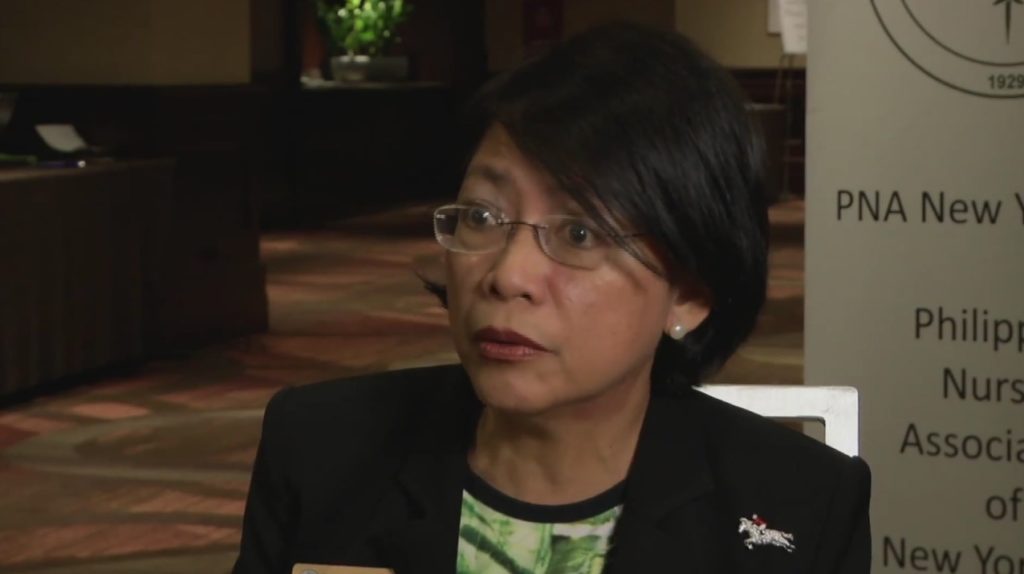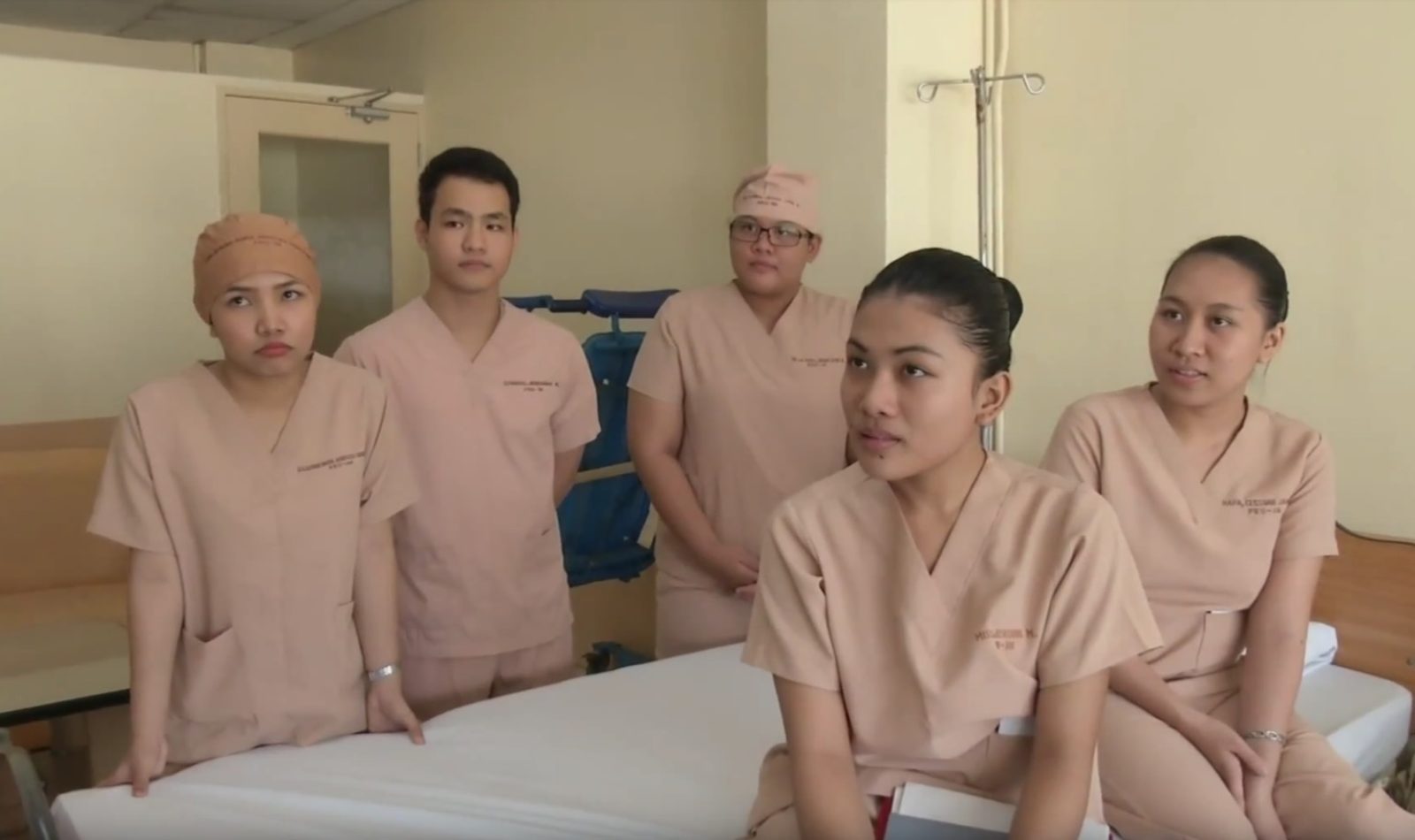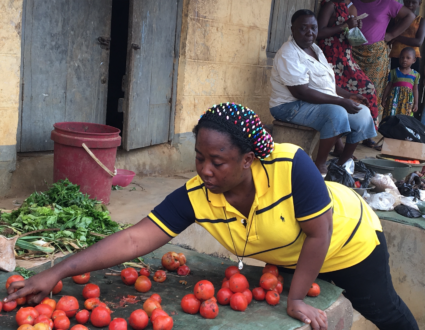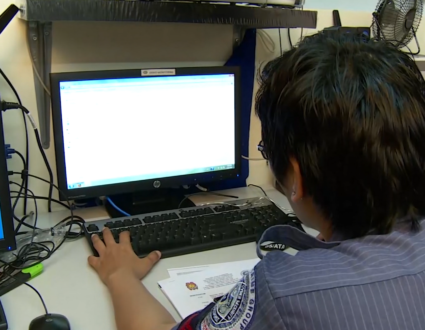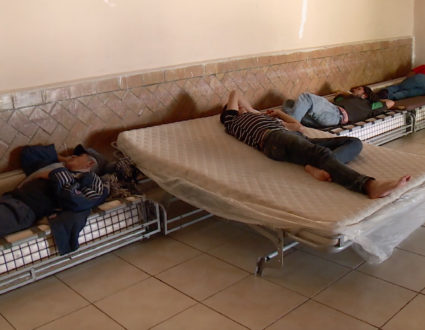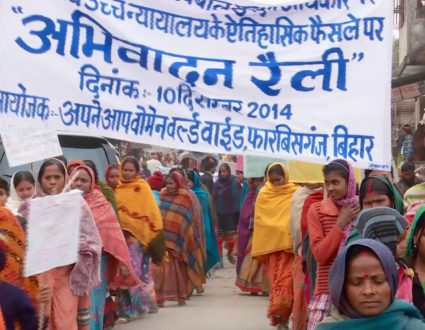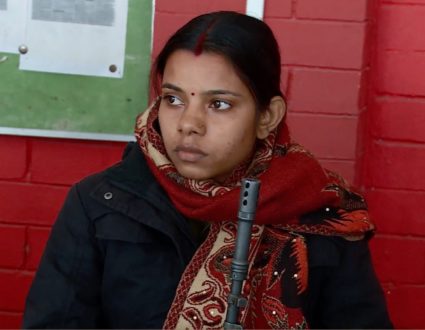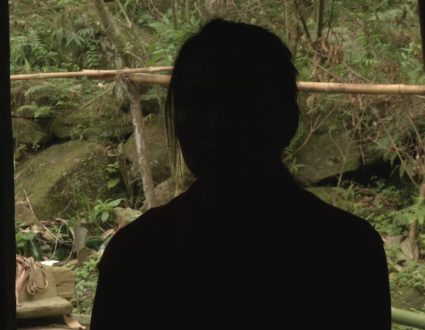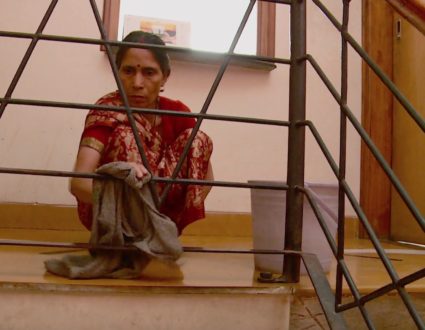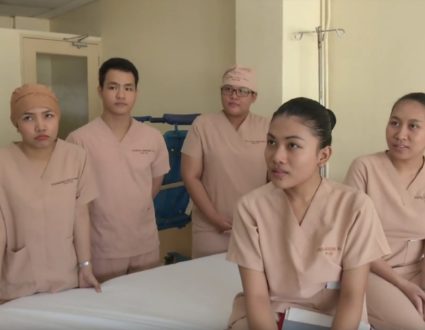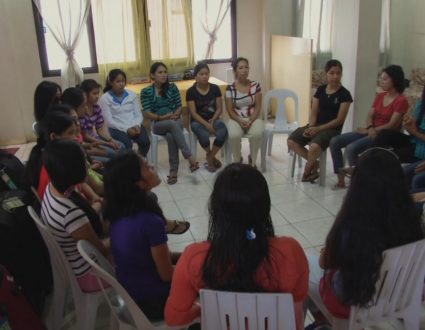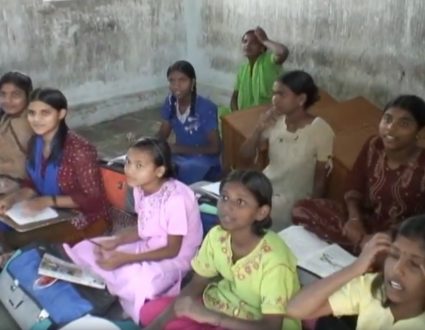GWEN IFILL: We turn now to the business of finding and hiring foreign nurses for the American health care system. The demand is great but, for some, so are also the risks.
NewsHour special correspondent Fred de Sam Lazaro reports from the Philippines.
FRED DE SAM LAZARO: Every few minutes at this Manila nursing school, a mannequin is born. Students are trained on a range of childbirth scenarios, simulated on robotic patients. But real life, whether in operating rooms or the job market these days, will be far trickier.
Nursing has long been a highly sought-after profession in the Philippines, mainly because it is seen as a ticket to a well-paid job outside the country.
WOMAN: My aunt abroad, she was the one who is sending me to college. She is in Hong Kong.
FRED DE SAM LAZARO: So, she encouraged you to become a nurse. Why?
WOMAN: Because, according from her, being a nurse in overseas is a lot of salary. They earn so much money.
FRED DE SAM LAZARO: If you were to work overseas, what would be your first choice?
WOMAN: Anywhere in the United States, sir.
FRED DE SAM LAZARO: She wants to follow a path that has brought tens of thousands of nurses from the Philippines, India and elsewhere to the U.S. over recent decades.
George Washington University Professor Patricia Pittman says they have filled critical, recurring nurse shortages.
PATRICIA PITTMAN, The George Washington University: The last major shortage of U.S. nurses was between 2000 and 2008. At the peak of that shortage, we were recruiting about 20,000 nurses a year.
FRED DE SAM LAZARO: The recession that hit in 2008 brought many part-time and retired American nurses back into the job market. That left their Filipino counterparts vying for fewer jobs and vulnerable to unscrupulous, even fraudulent recruiters.
ANDREA SANTOS, Nurse: I was a nurse in the Philippines, and I was just barely making it. I was making around $100 a month.
FRED DE SAM LAZARO: Five years ago, Andrea Santos was scouring the Internet, looking to better her career prospects. She began communicating online with a Denver-based recruiter. He offered her a job and the sponsorship she required to apply for a work visa.
ANDREA SANTOS: So, I was surprised and very thankful.
FRED DE SAM LAZARO: Single at the time, Santos left her infant daughter behind with her family. She also borrowed $6,500 from them, a mortgage-size sum in the Philippines, to pay her way to America,
ANDREA SANTOS: He actually told me, OK, he will give the money back to me. So that made me interested.
FRED DE SAM LAZARO: What made you believe him?
ANDREA SANTOS: Desperation.
FRED DE SAM LAZARO: Once in Denver, her nightmare began to unfold. Not only did her recruiter, a man named Kizzy Kalu, not refund her expenses. He began to take 40 percent of her salary. If she dared question, Santos says, Kalu responded with threats and intimidation, since her visa depended upon employment by him.
ANDREA SANTOS: It’s more of a psychological threat for me that, if I don’t do as he say, then I will face deportation.
FRED DE SAM LAZARO: Kalu began using Santos’ image on his Web site as a success story to attract more recruits.
PENELOPE PILPA, Nurse: I was able to see her on the Internet, yes. I was like, if she can do it, maybe I can also do it.
FRED DE SAM LAZARO: For later like Penelope Pilpa, Kalu raised his price, extracting up-front fees of up to $10,000. He promised her a university teaching job. Turns out, the university didn’t even exist.
PENELOPE PILPA: Kizzy was always threatening us to, if you go out of this contract, we’re going to deport you back to the Philippines.
FRED DE SAM LAZARO: Eventually, the law caught up with Kizzy Kalu, himself an immigrant from Nigeria. Late last year, he was convicted of human trafficking and sentenced to 11 years in prison.
VICKY NAVARRO, Philippine Nurses Assoc. of America: You’re age 20, 25, and you are in a foreign country. You are truly dependent on the individual that has recruited you here. And not having a lot of knowledge, or having done legwork in what it entails to have a contract, then they are really so vulnerable.
FRED DE SAM LAZARO: Vicky Navarro is with the Philippine Nurses Association of America.
VICKY NAVARRO: These nurses are now here dependent on the agency to provide them with the work, to provide them with a place to live even, and so – and the visa issue as well. They are real literally held hostage because of the visa.
FRED DE SAM LAZARO: Visas tie nurses to their employers. Historically, these were large hospitals and health care systems, but with growing government backlogs in processing visas, providers began turning more and more to staffing agencies, like the one Kalu pretended to run.
PATRICIA PITTMAN: Because the recruitment takes a fairly long time several years, it’s hard for them to predict what they will need when visas come through, whereas as a staffing agency in theory can move people around according to what the demand is. So, they have less risk.
FRED DE SAM LAZARO: Even when the recruiter isn’t a trafficker, the deals still can work to the nurses’ disadvantage. Contracts often bind nurses to their agency for up to four years, with penalties reaching $60,000 if they quit earlier. Many contracts have other daunting provisions.
PATRICIA PITTMAN: Recruiters basically verbally and in the contract prevent the candidate from – from showing the contract to anyone else. There is a waiver in some contracts that they have to sign that they will not seek legal recourse.
FRED DE SAM LAZARO: These provisions are never required of Canadian or European nurses who come to work in the U.S. In recent years, some hospital groups, Philippine and Indian nursing associations and unions have drawn up a code of conduct to prohibit such practices, but only a few staffing agencies have signed on.
Meanwhile, in the Philippines, a large industry, some 300 nursing schools that mainly target the American market, is waiting for a pickup in hiring.
How many of you will take the nursing board exam that would qualify you to work in the United States? Give me a show of hands.
The life they dream of may well resemble what Andrea Santos now enjoys. As victims in a trafficking case, she and others who were scammed by Kalu were allowed to find new employers and permanent residence in the U.S. She now works for a Los Angeles nursing care service, is reunited with daughter Alyssa, and married to Iraq war veteran Sean Santos.
Penelope Pilpa also has a good job in a hospital.
PENELOPE PILPA: There’s a lot of opportunities, but you just need to be very careful, especially with a contract, because anywhere in the world, there’s always bogus or there’s always people who want to – to make money out of you. And they could be legal or they could be illegal.
FRED DE SAM LAZARO: Both legal and illegal could increase significantly, starting in about a year. An improving economy and an aging American population will increase the need for nurses, as, quite possibly, will changes brought by the Affordable Care Act.
Experts say the U.S. could begin to see pre-recession level shortages as early as 2018.
JUDY WOODRUFF: Fred’s reporting is a partnership with the Under-Told Stories Project at Saint Mary’s University in Minnesota.
Supply and Demand
Shortages in the American health care system are raising demand for foreign nurses, who can unknowingly face great risk in finding a way to get to the United States. Special correspondent Fred de Sam Lazaro reports from the Philippines about nurses whose desperation led them to become victims of human trafficking.
VICKY NAVARRO
“You’re age 20, 25, and you are in a foreign country. You are truly dependent on the individual that has recruited you here. And not having a lot of knowledge, or having done legwork in what it entails to have a contract, then they are really so vulnerable.”
